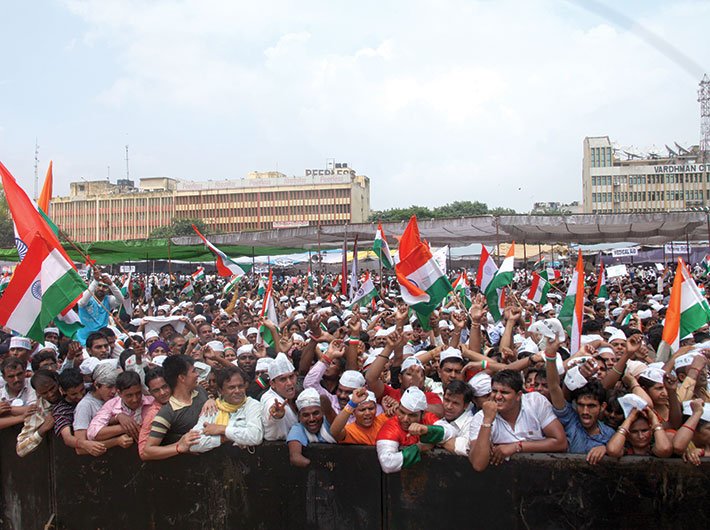The government has told the supreme court that the Lokpal cannot be appointed because the 2013 law needs several amendments, which will be taken up only in the monsoon session.
The Narendra Modi government began its innings by issuing two ordinances in the first cabinet meet – an emergency provision for lawmaking, and has issued at least 22 so far. If it has slightest urgency to fulfill the anti-corruption mandate, it would have resorted to this channel and appointed a Lokpal by now.
Ironically, this is one law for which it would not even need the ordinance route, as the opposition would have whole-heartedly supported it.
Also read: If you (really) want to fight black money, won’t Lokpal make more sense?
Attorney general Mukul Rohatgi told the apex court on Tuesday that a parliamentary standing committee report had proposed 20 amendments, and parliament “may” consider them in the monsoon session. The supreme court is hearing a bunch of petitions seeking early appointment of the overarching anti-corruption mechanism.
A key amendment is that the original law provides for the leader of opposition (LoP) of the Lok Sabha in the Lokpal selection panel, but since there is no LoP in the lower house after the Congress debacle in the 2014 elections, the expression “LoP” needs to be replaced by “the leader of the largest party”. It’s difficult to imagine the Congress – which brought the 2013 law – creating any hurdles for this amendment.
Not that the government has not resorted to the ordinance route on Lokpal – it did, in 2016 – but only to amend the provision about declaration of assets and liabilities by public servants. Providing relief to bureaucrats against a pressing deadline was a matter of urgency. Providing citizens a Lokpal was not.
Urgency is the key word here, because in 2011, when Anna Hazare, supported by Arvind Kejriwal and others, were demanding the Jan Lok Pal law, there were moments when the agitators and their supporters were not ready to wait even a day and wanted parliament to continue till late in the evening to pass this law.
A glance at the selective list of ordinances – some of them reissued several times – provides the best indicator of the government’s priorities. For these matters, the government scrambled, rushed, and resorted to the exceptional routes (inviting criticism from the president too), but the Lokpal is not one of them.
* The very first one in May 2014: The ordinance to amend the Telecom Regulatory Authority of India (TRAI) Act [so that an exception can be made for a former TRAI chief, Nripendra Mishra, to be appointed principal secretary to the prime minister]
* The Right to Fair Compensation and Transparency in Land Acquisition, Rehabilitation and Resettlement (Amendment) Ordinance, [issued several times, to dilute the UPA-time stringent law on land acquisition, and making it easier for companies to acquire land for commercial projects]
* An ordinance to amend the Enemy Property Act (Eviction of Unauthorized Occupants Act) of 1971 [for the state take over the properties of those who fled to Pakistan]
* The Motor Vehicles (Amendment) Ordinance, 2015 [for better registration facilities to reduce accidents]
* The Citizenship (Amendment) Ordinance, 2015 [to introduce reforms for NRIs and PIOs]
* The Insurance Laws (Amendment) Ordinance [to raise the FDI limit in insurance to 49 percent]
* The Coal Mines (Special Provisions) Ordinance [to reform coal mining licence process]
* The ordinance to amend the Andhra Pradesh Reorganisation Act [to transfer of some villages for a project]
* The latest, in December: the ordinance to make it illegal to hold demonetized currency notes
